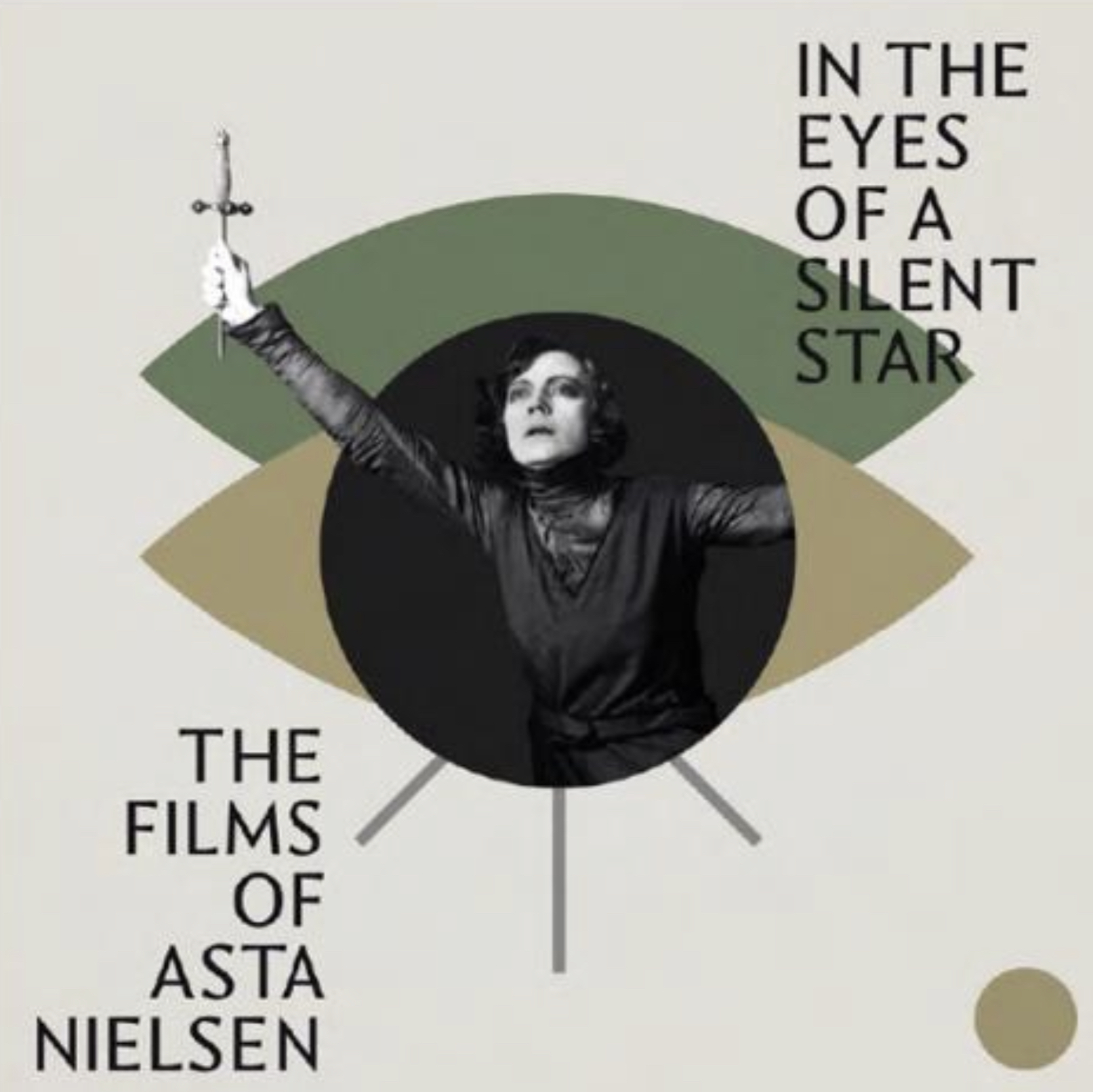*
13 January 2022, London.
The BFI today announces full details of IN THE EYES OF A SILENT STAR: THE FILMS OF ASTA NIELSEN – a retrospective celebrating the vibrant career of Danish star of silent cinema ASTA NIELSEN, a performer with boundless range, unique sensitivity and unforgettably hypnotic eyes.
*
Taking place at BFI Southbank from 3 February – 15 March, the season is programmed by film historian and writer Pamela Hutchinson and will showcase Nielsen’s incredible career, from early work such as her debut in the erotic melodrama THE ABYSS (Urban Gad, 1911), to her androgynous portrayal of the Danish prince in HAMLET (Svend Gade, 1921), through to her final dramatic film role, and first talkie, IMPOSSIBLE LOVE (Erich Waschneck, 1932). The season will launch on 3 February with a talk – THE ABC OF ASTA NIELSEN – in which season curator Pamela Hutchinson will present an illustrated lecture on Nielsen’s life and incredible career, before she is joined by a panel of experts including the BFI’s curator of silent film, Bryony Dixon, to examine Nielsen’s performance, stardom and significance in depth.
*
*
The retrospective, which is presented in partnership with Danish Film Institute (Det Danske Filminstitut), will chronicle Nielsen’s illustrious career, the early part of which featured over 30collaborations with her first husband, Danish film director Urban Gad, introducing her as an accomplished actress who would lead 1900s European silent film in both comedy and tragedy. Highlights of this period of her career screening in February will include THE ABC OF LOVE (Magnus Stifter, 1916), where Nielsen offers an androgynous style and erotic performance as a young girl impersonating a male to teach her fiancé about masculinity; THE BLACK DREAM (Urban Gad, 1911), in which she plays a circus star pursued by two suitors; and ZAPATA’S GANG (Urban Gad, 1913/14) where, in self-reflexive reference to her own celebrity, she plays an actor, on location to shoot a film about bandits. Also screening in February will be Nielsen’s final creative work, the documentary ASTA NIELSEN (Asta Nielsen, 1968), a self-portrait in which the actress reflects on her life and magnificent career in conversation with the Danish actor Axel Strøbye – the result is a now immortalised reminder of the first international movie star.
*




*
*
Screenings in March will focus on the latter part of her career, including her flexible-minded interpretation of William Shakespeare’s HAMLET (Svend Gade, 1921); Nielsen’s androgyny and emotional range come to the fore in a Shakespeare film that challenges both gender roles and patriarchal authority. Also screening will be THE DECLINE (Ludwig Wolff, 1923) in which fortysomething Nielsen confronts the ageing process and plays a musical star waiting faithfully for her lover to be released from a jail sentence so they can be reunited. Nielsen co-stars with a young Greta Garbo in GW Pabst’s THE JOYLESS STREET (1925), set in a slum district where meat is valued more highly than morality and sex work seems to be the only way for women to survive.
*
Although a prominent figure in European cinema thanks to her intensely emotional and modern performances, Nielsen’s work remained relatively obscure to American audiences as censors considered her roles too erotic; over a century after Nielsen’s screen debut, the screenings in this season, which will be presented with live piano accompaniment, offer audiences a chance to discover the work of one of the brightest stars of the silent era.
*
In cultural partnership with Danish Film Institute (Det Danske Filminstitut)
SOURCE: BFI
*


